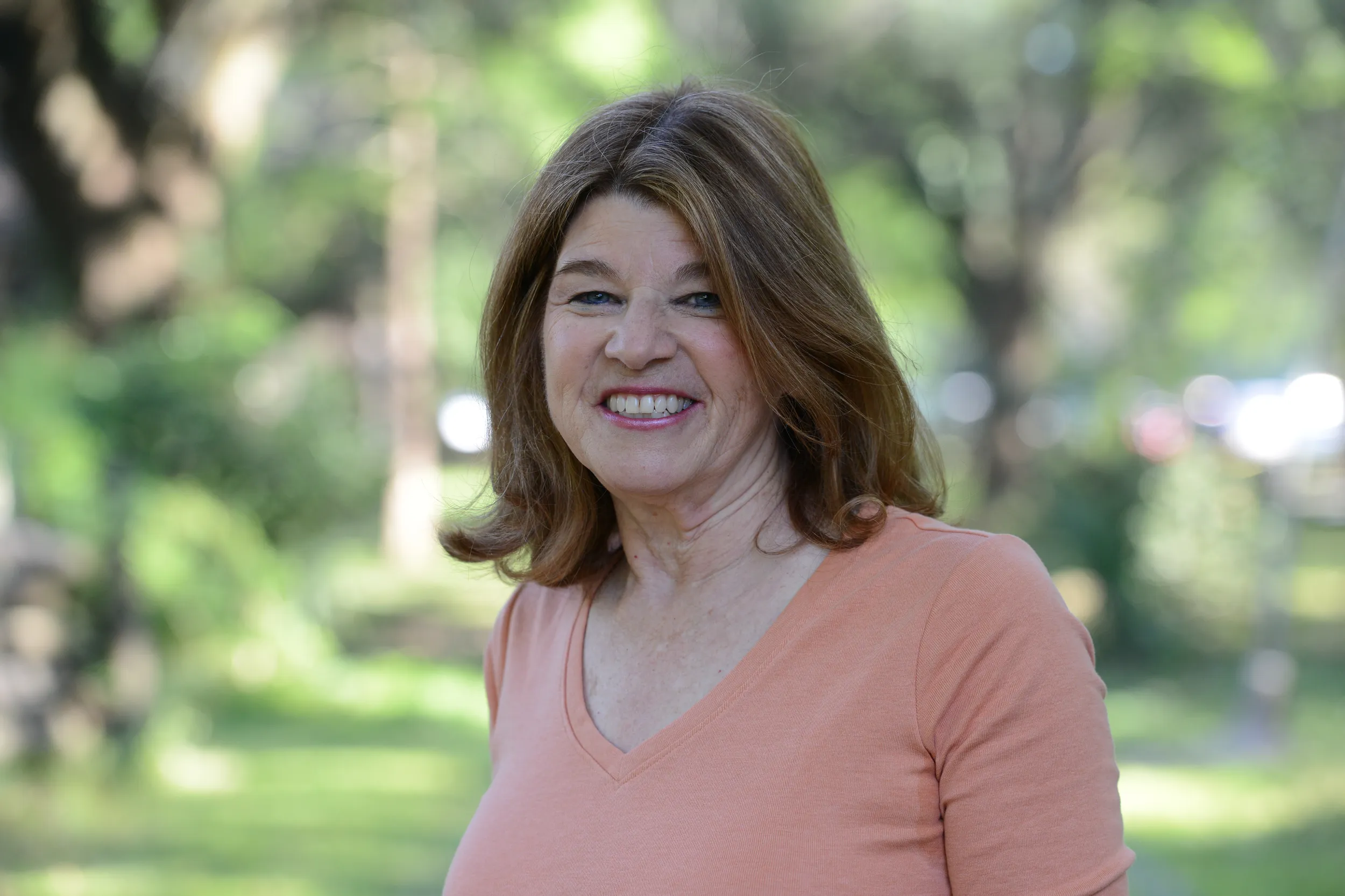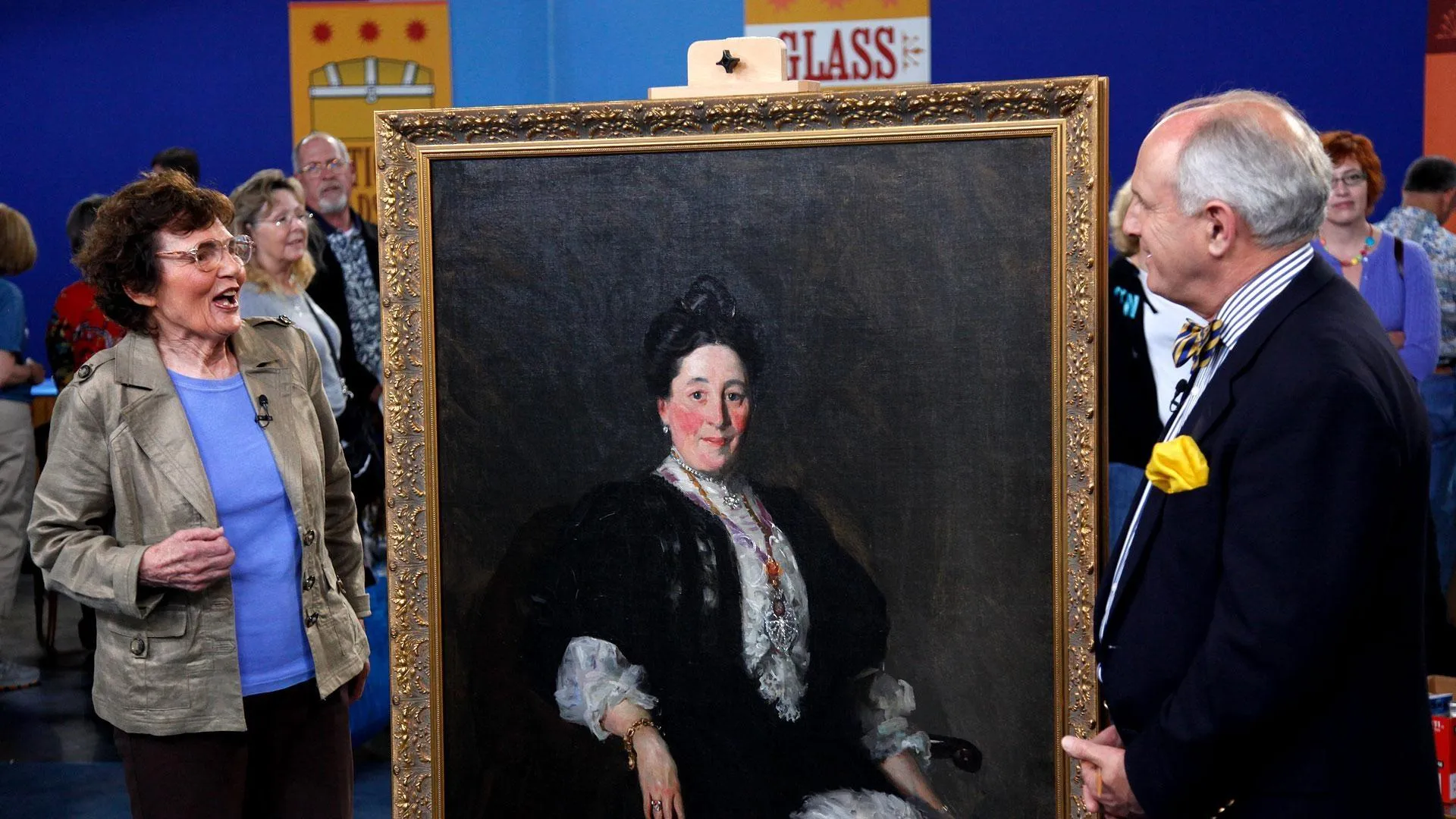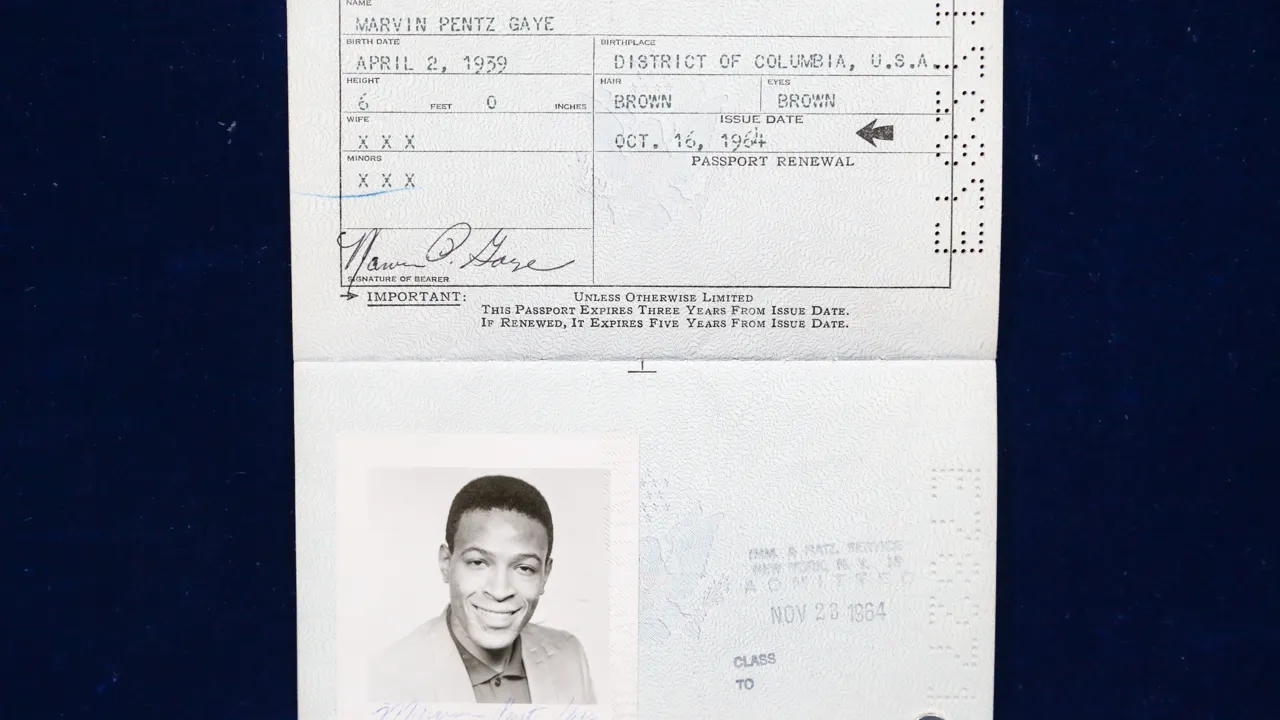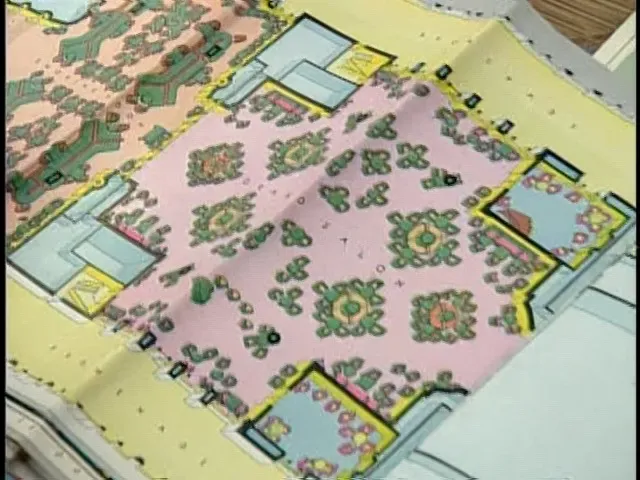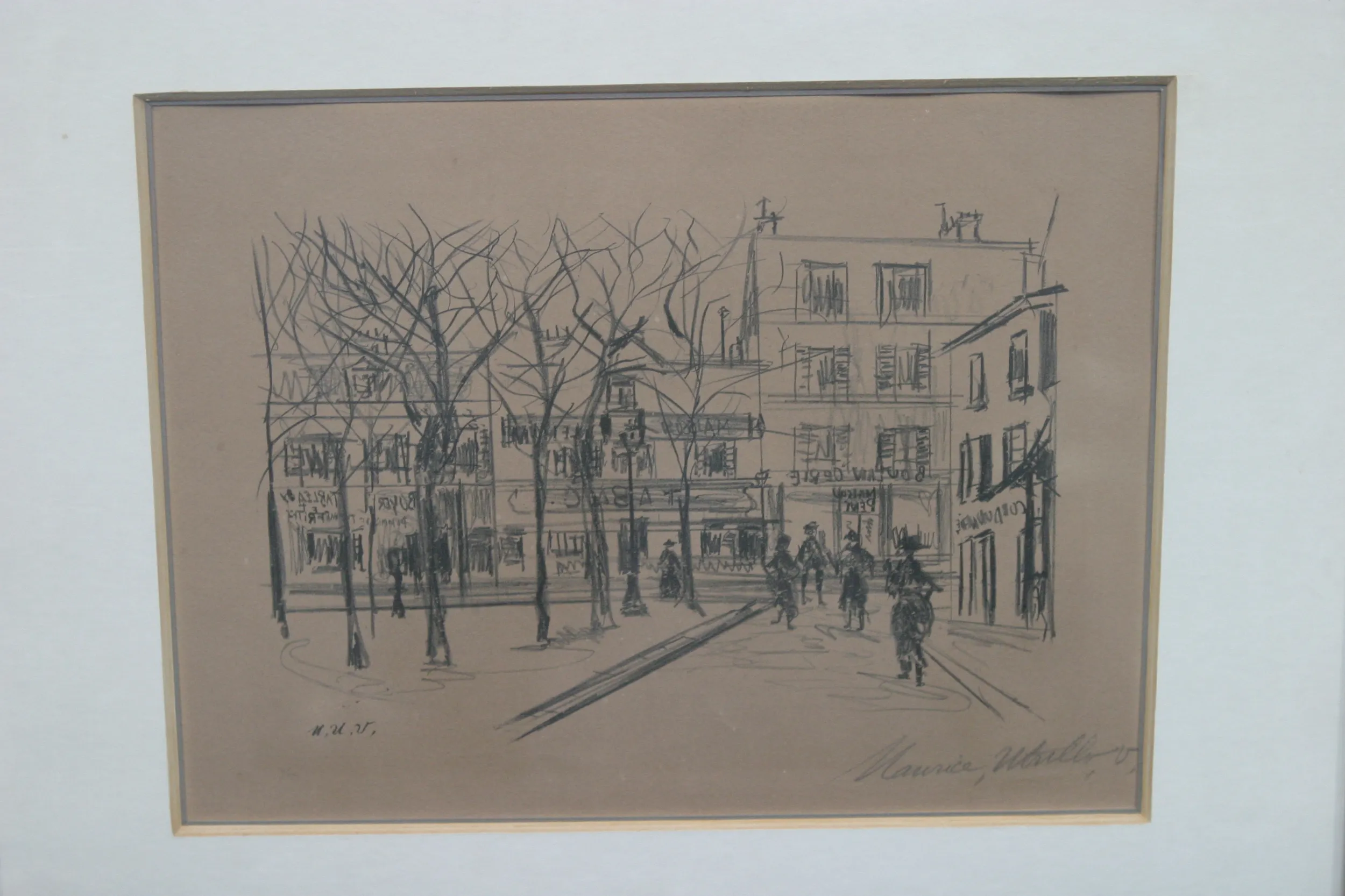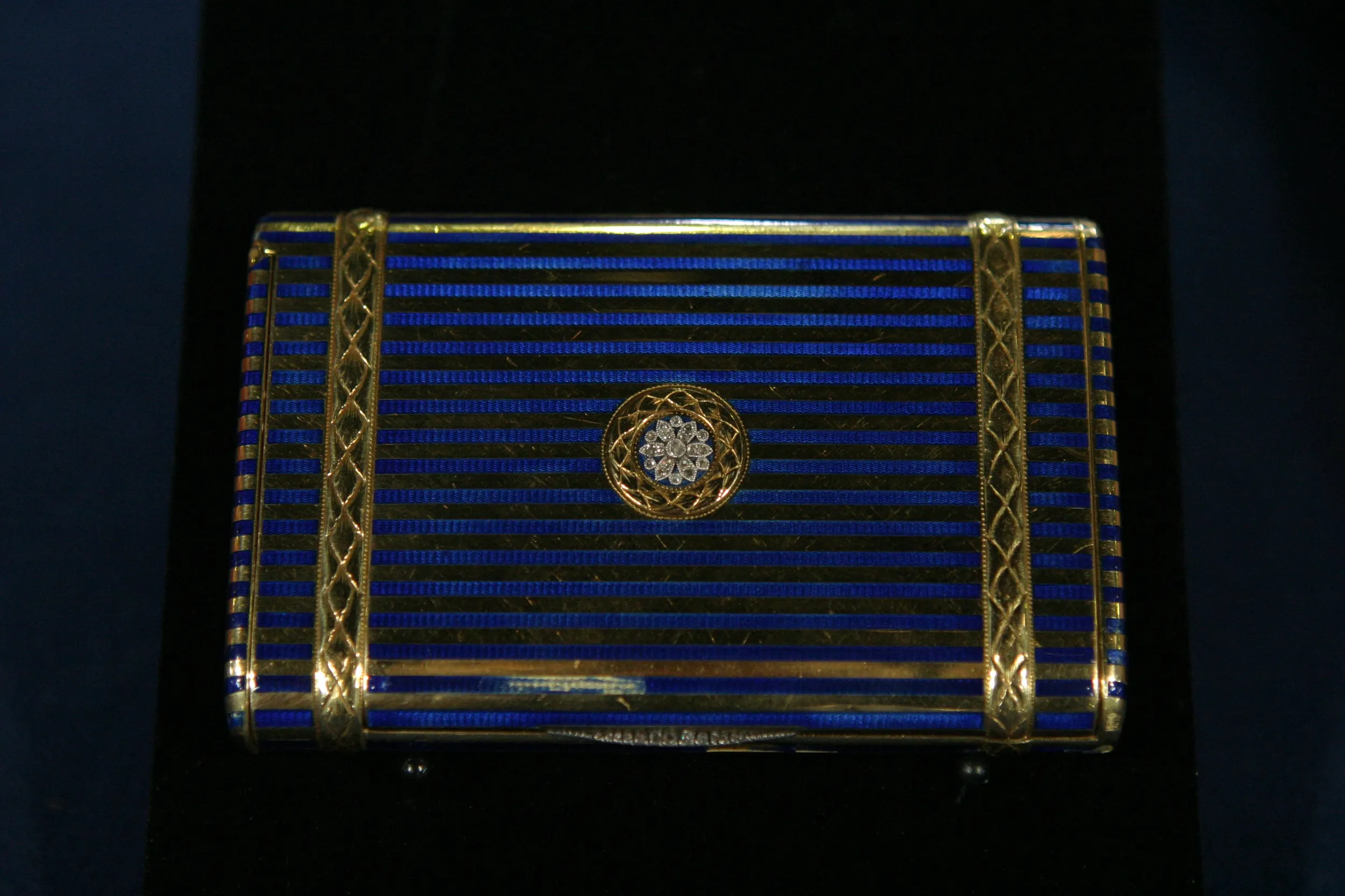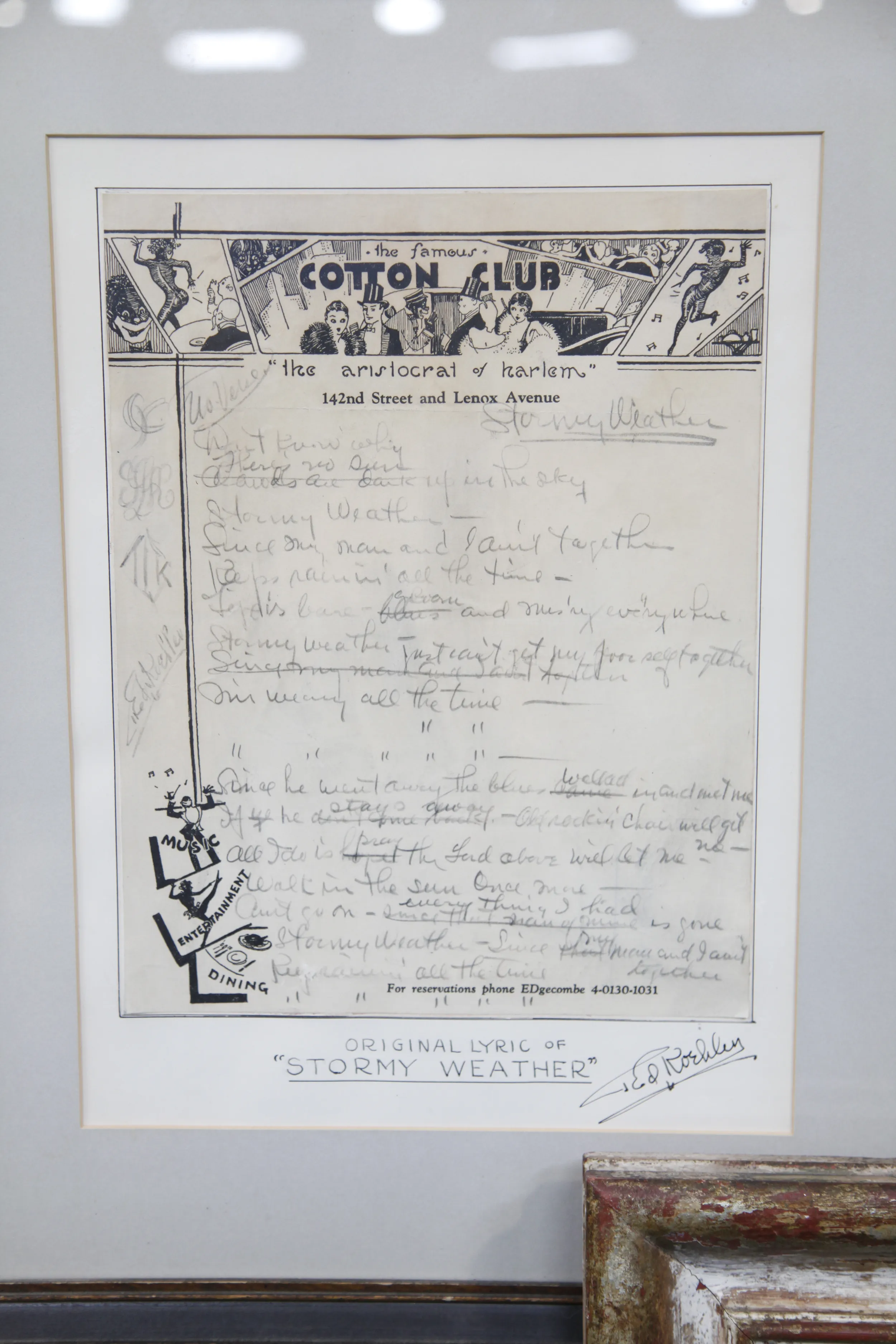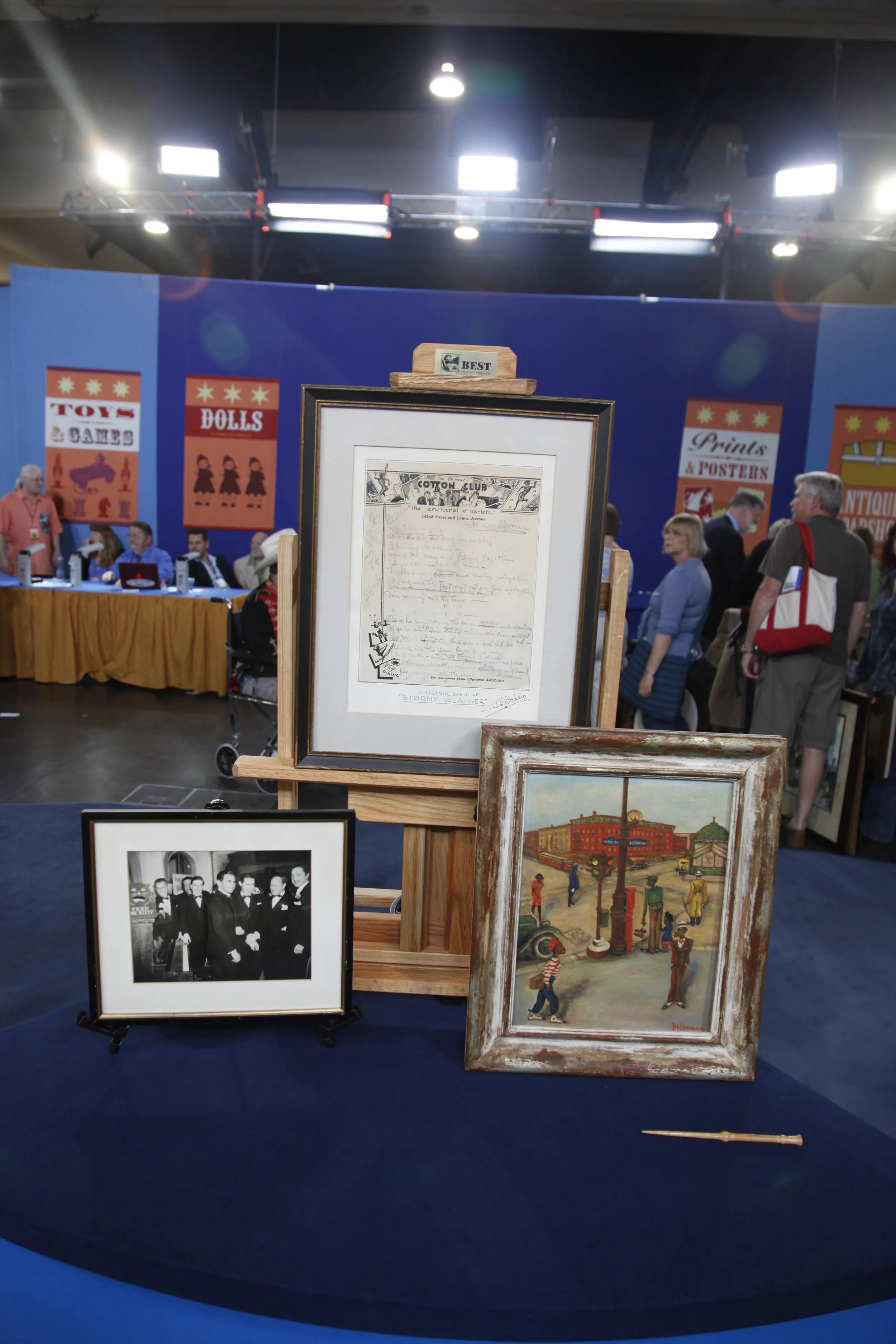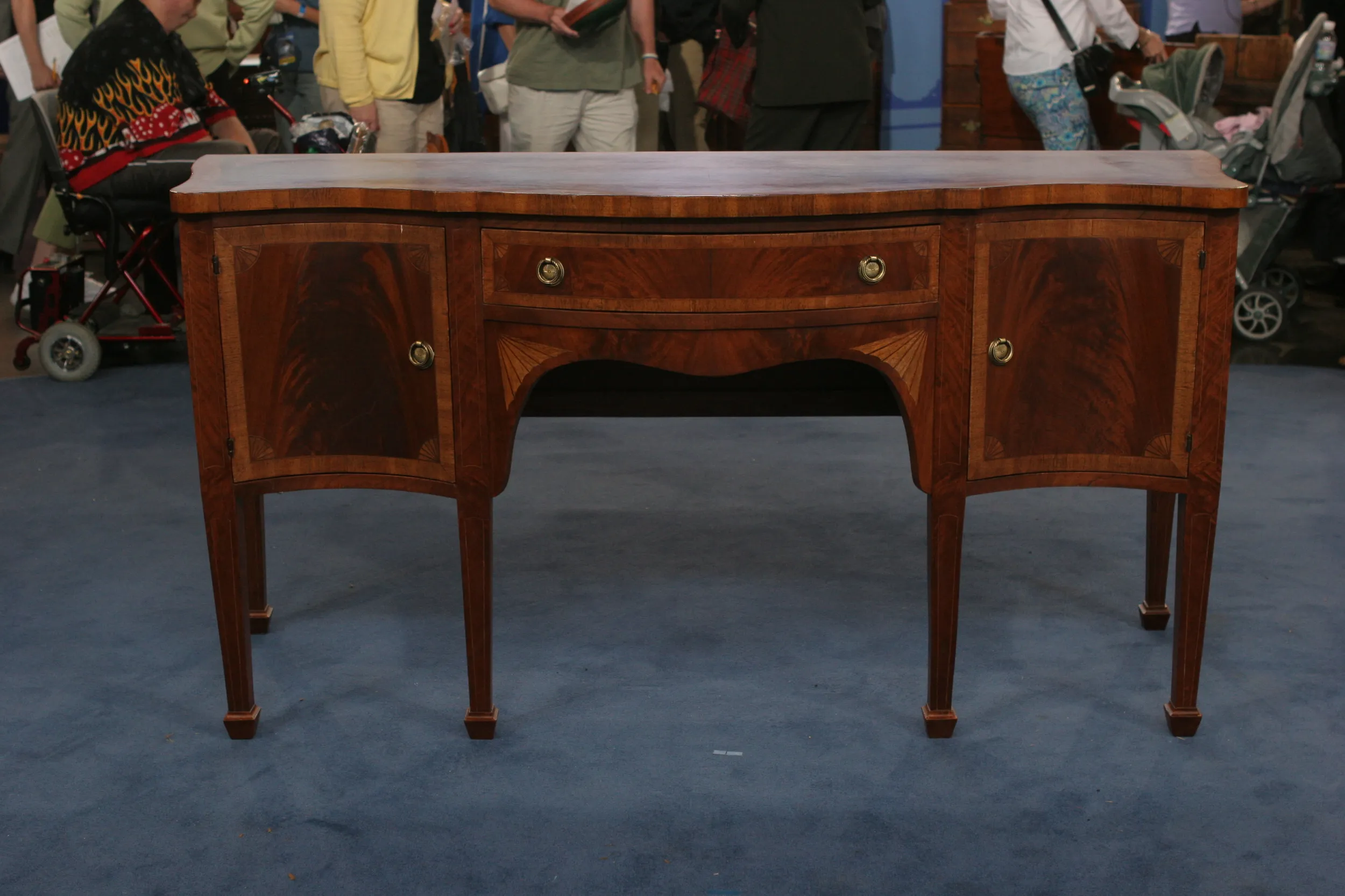GUEST: I've known this song for quite a while. This song was written, uh, in part by my grandfather, Ted Koehler, and he wrote it with Harold Arlen. It was in 1933. They wrote it for one of the Cotton Club revues of that year.
APPRAISER: Mm-hmm, mm-hmm.
GUEST: And this stationery that he wrote it on, I think, was a, sort of a normal practice for him. From what I know about the composition, it, it was quick. You know, maybe an hour or two? Mm-hmm, mm-hmm. From what I've read.
APPRAISER: Right.
GUEST: We don't have any other examples of these original lyrics. And I think the fact that they wrote it so quick is maybe why they have it all just on one page, even though they...
APPRAISER: Even though your grandfather wrote other great lyrics, like "As Long As I Live," "I've Got the World on a String."
GUEST: Right.
APPRAISER: Uh, "Don't Worry About Me," "Ill Wind." (chuckles):
GUEST: Yeah, it's, I don't know why the, we don't have more of that stuff, but I'm, I'm sure glad we have this one.
APPRAISER: You know, if you go back to the Cotton Club, it was actually established by boxer Jack Johnson in 1920 as the Club Deluxe, but it was taken over by gangster Owney Madden in 1923, who renamed it the Cotton Club.
GUEST: Okay.
APPRAISER: Your grandfather Ted and Harold, they were two of the staff for, at the Cotton Club from 1930 to 1934, and they wrote some of the greatest songs for Cab Calloway, Duke Ellington. They wrote for the revues that came up twice a year. In '33, what I've read, they wrote this at a party. How fun is that?
GUEST: Wow, yeah.
APPRAISER: And they did it for Cab Calloway.
GUEST: Uh-huh.
APPRAISER: But Cab left the show. They got Duke Ellington, but he had no singer. It just so happened that Ethel Waters, who was singing for fellow gangster Al Capone in Chicago, moved back to New York, and they gave her this song. But where it really became a standard is in 1943. And that's when Lena Horne, who, interestingly enough, got her start as a 16-year-old chorus girl at the Cotton Club...
GUEST: Right.
APPRAISER: ...sang it in "Stormy Weather," which is one of the few nearly all-Black ensemble cast movies that was really made for a white audience, and it became a standard and a classic to this day, and one of the greatest jazz classics of all time. This is a great period photo-- here's your grandfather Ted Koehler, and there's Harold Arlen...
GUEST: Yeah.
APPRAISER: ...who he'd collaborate, and Irving Berlin. They're out having a good time.
GUEST: Yeah, yeah.
APPRAISER: We also have this great painting, because it seemed that your, uh, grandfather was multitalented. It's a fabulous Harlem scene at 135th and Lenox.
GUEST: Yeah.
APPRAISER: But then we look at the lyrics. And what makes these lyrics so great, their original words were "clouds are dark up in the sky," and then they changed to "there's no sun." Well, think about the resonance that gave it. They changed "blues" to "gloom." "The blues came and met me," instead, "the blues walked in and met me." "All I do is hope," instead now it's "all I do is pray." You see the thought process of the composer, and obviously made it the song that it is today. Just on the painting, on its own, I would probably put $2,000 to $4,000 on the painting. I think it's fantastic. I think it's a great scene, and the fact it was done by your grandfather had an appreciation. But the lyrics, there aren't a lot of comparables out there. If I were going to put an auction estimate on it, and I'm being conservative here, I'd put $50,000 to $75,000.
GUEST: Wow! Wow!
APPRAISER: And if I were going to insure it, I'd insure it for at least $100,000.
GUEST: Oh, wow.
APPRAISER: It's a fabulous piece of history and social history.
GUEST: Oh, that's great, thank you so much.
